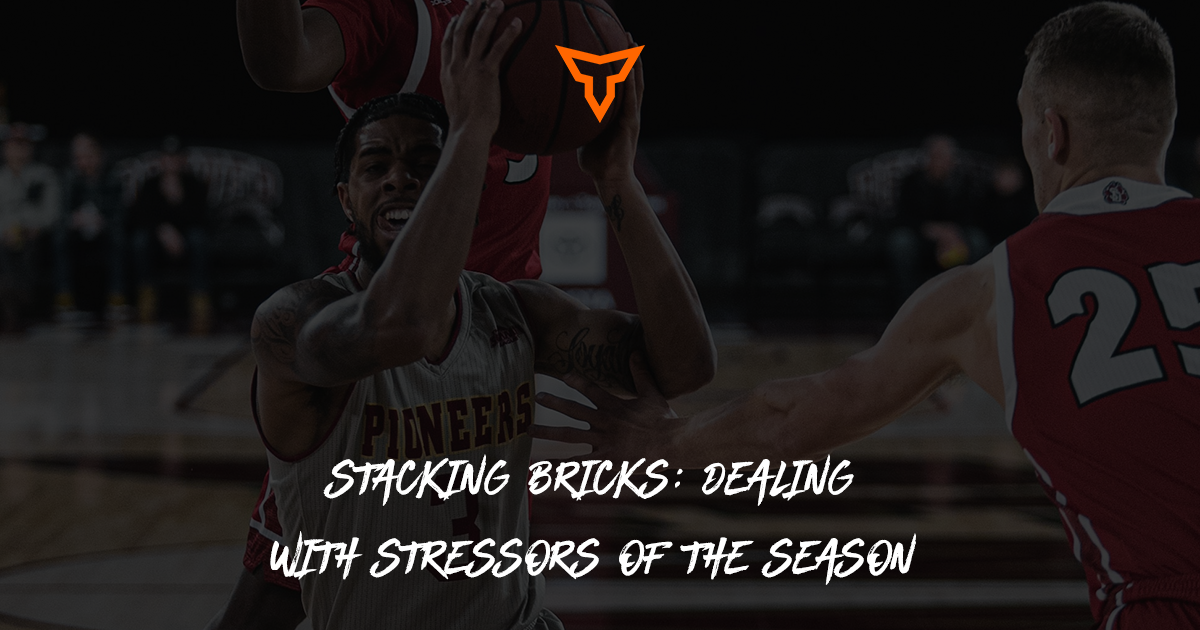Negotiation Tips for Strength Coaches
Just like most young coaches starting out, I thought I knew everything when I first became a strength coach. It comes with the territory, right? Being fresh out of school, armed with all the tools and knowledge to make a difference in your profession. I don’t think this is unique to strength coaching, or even athletics, but I learned quickly that school didn’t prepare me fully.
I assumed that everyone else in the athletics department knew (and subsequently thought) that my job was really important. After all, I knew and thought my job was really important, so they should, too! So when I needed something like equipment or funding or staffing to do my job effectively, I also assumed that others in the department would agree (because my job was really important) and it would result in me getting the resources I wanted/needed to do my job optimally.
Oh, how time would teach me… As I look back on the answers I received to requests for new equipment, more supplements, more staff, etc., most of them sounded something like, “No,” (that’s a hard no) or “Not right now,” or “Why do you need that?”
As a go-getter, I knew those various versions of no just meant I had to find another way to get it done. Thus began my experience of learning how to negotiate as a strength coach in the athletics department. I’d like to think I learned quickly because I was negotiating for my athletes, for my staff, and myself. But in reality, it’s taken a 20+ year career (and several life experiences) to learn how to negotiate, and I’m STILL learning.
Here are some of the most memorable principles I’ve picked up along the way in the hopes they’ll help you:
Beg, Borrow, Take
My close friend, Donnie Sommer, once gave me the advice to “beg, borrow, or take whatever you need to get your job done.” This method is one that shouldn’t be used often because there’s only so much you can beg and borrow, and you might find yourself in trouble depending on what you take. In a pinch, it works though, so just use it sparingly.
Never Subtract
Boyd Epley once spent five hours with me when I was a Graduate Assistant and during that time he showed me how he planned, organized, and executed his vision. I still remember his stacks of legal pads full of pages of information written in them. It was during those five hours that Boyd taught me the foundations of how to build a staff and the one principle he said that I’ll never forget was to add, divide, or multiply your staff… but never, ever subtract.
Have Options
Mike Alden who was my Athletic Director for over 15 years taught me to always prepare what you want in phases and with options. Specifically, when presenting to decision-makers or gatekeepers, present three different options for what you want to accomplish. This will convey the urgency of the need for your proposal as well as the method behind your madness.
For example, if you can give a three-year phase of implementation for a weight room equipment upgrade, they’ll be able to see what’s most urgent and why. The professionals in the business office will appreciate your thoughtfulness and may even think you’re a compassionate individual. Imagine that! a compassionate Strength Coach... They might even keep it a secret if you ask nicely.
Details, Details, Details
When you ask for big-ticket items, be as detailed with your ‘ask’ as you are with your programming periodization. At one point in my career, I asked for an additional $100,000 to be added to my operating budget. This is different than a one-time ask for a capital project, it was an annual budget increase I was asking for.
Upon my ask, my athletic director, Mike Alden, requested I schedule a monthly meeting with him and my supervisor at a coffee shop downtown. We had a good initial meeting where I was asked a few questions that I actually needed help from my staff answering. I’ll never forget the meeting the following month where I was prepared to bring those answers - Mike Alden’s notes were more detailed than mine! He was taking me back to school. After four months of these meetings (aka lessons for me) at the coffee house, he agreed to the plan and we got our budget increase.
Your Best Self
Always be the nicest version of yourself when using written communication. Remember, there’s already the (usually) negative perception that comes with being a weight room warrior, always in Beast Mode. Or put another way, don’t personify the caveman, meathead stereotype in your emails. When you defy people’s perceptions in written communication, it will pay dividends. You’ll thank yourself later, trust me!
Never Take No For An Answer
Take it as a roadblock or a challenge to look for other resources you can use in the Athletic Department. Build relationships with the professionals in Compliance, Fundraising and Development, and the Business Office. Learn how to help them help you.
At one point, we were generating $35k annually with a Performance Club that was connected to development. Donors could improve their parking and seat selection by contributing to the weight room fund. We even had an endowment of $500k. That paid dividends up 6% and generated $30k annually once it was fully funded. Needless to say, the Fundraising and Development department liked us.
Competition Is Good
Use job offers that you or your staff members receive to improve the situation for yourself, your staff, and your department. If you or your staff members are in demand for another position, it gives you leverage. Provided you wanted to stay in your current position, we used the half principle: accept half the difference of what another job was offering if you wanted to stay. So if there was a $10k increase in salary, aiming for and accepting a $5k increase at your current position. This always showed the athletic department leadership a willingness to compromise.
Be warned with this one though - if leadership doesn’t compromise and agree to a raise, you must be willing to take the new position or you’ll become the boy/girl who cried wolf and you’ll lose that aspect of negotiating.
The bottom line is to continue learning how to get what you need to better do your job. You don’t HAVE to use any of these principles to succeed, but I do know that using them, we grew our annual operating budget from $329k to $1.6M over 12 years. We tripled our staff and had an army of interns and volunteers. We got approval for new facilities and we reached a point where we could find a way to get whatever we needed for the staff and for our athletes. And speaking from experience, that’s a really good place to be in, but it takes years of cultivating those relationships and learning how to negotiate.
Perhaps if I had learned some of these skills earlier, it would have only taken 5-7 years!
Subscribe to our blog
Subscribe to receive the latest blog posts to your inbox every week.
Related posts

From Coach to Leader Part 2: Consistency

3 Frameworks to Freshen Up Your Client On-Boarding


